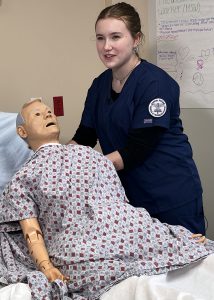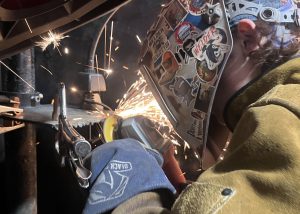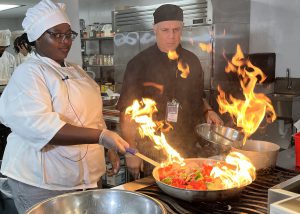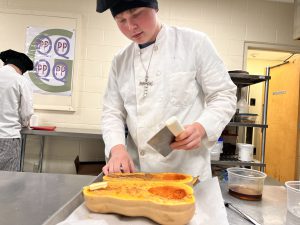 “I learn better when I am doing something other than just sitting in a school.”
“I learn better when I am doing something other than just sitting in a school.”
That quote from a Capital Region BOCES Heating Ventilation Air Conditioning and Refrigeration (HVAC/R) graduate not only sums up the point of view of most Career and Technical School students, but also national and international research into education.
Research study after research study points to the idea that students who are actively engaged in their learning perform better than those who find themselves lost in a cacophony of words in a traditional academic environment.
An article on SocialStudies.com stated students gain
valuable skills—critical thinking, communication, collaboration and creativity—by learning while doing. 
According to education consulting firm MicroTek, research has shown that students retain only 5% of material presented through lecture and 30% of information taught through demonstration, but they retain as much as 75% of the information they learn through hands-on participation.
“I learn better when I am doing it,” said Akeem Ali, a Schenectady junior in the HVAC/R program.
Two-Year Sequence of Health Careers junior River Adams agreed.
“Hands-on work makes it easier to commit to memory and helps to ensure you are doing the skills properly,” said the Niskayuna student. 
Whether in the Diesel Technology, Network Technology and Culinary Arts and Hospitality Technology programs or the Automotive Trades and Global Fashion programs, a student engaged in learning with his or her hands is a happy student.
“A BOCES education is important for most career fields because it’s hands-on,” said Faith Coates, a Class of 2024 graduate from Berne-Knox-Westerlo.
Fellow alumni agree.
Mahendradat Mangroo, General Manager of the Albany Marriott Hotel, is a Class of 2007 BOCES graduate.
“BOCES was important because in reality I thought of the industry as being a cool industry because of the hotels and travel. Being hands-on in the work through BOCES taught me so much more and confirmed for me that this was a career I wanted to pursue,” he said.
Class of 2024 Diesel Tech graduate Jacob Borst agreed. 
“Tearing apart an engine with your hands, putting it back together and having it turn over is an amazing feeling, and it makes learning about that much more understandable,” said Borst, a Schoharie High School graduate.
Education advocates have long noted the benefits of hands-on learning. Everett College research found that besides retention and learning how concepts apply to real life, students who learn with their hands:
-
- Have a better feel for the training material at hand. If the student is working with equipment or software, this method can be especially effective.
- Simulate real life. A hands-on learning environment can quite often simulate what students must do in their real-life careers, giving them a competitive edge over their peers.
- Develop critical thinking skills. A goal of hands-on learning is the expectation that students will learn to make the on-the-spot decisions that can affect a desired outcome.
This year’s seniors said they look forward to taking part in more active learning.
“I like building stuff and working with my hands. I enjoy the whole process of welding,” said John Bush, a Welding and Metal Fabrication senior from North Colonie.
“It’s a lot of fun. Some of the work is challenging, but it’s great to figure it out and overcome it,” Welding classmate Jacob Montalbano from Burnt Hills-Ballston Lake said.
